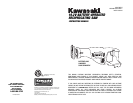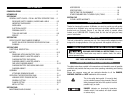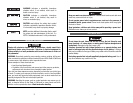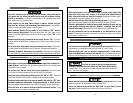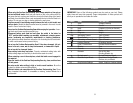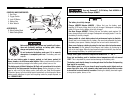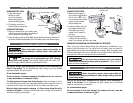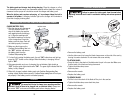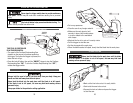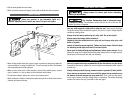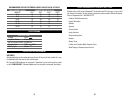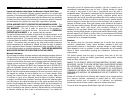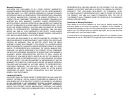
Use only Kawasaki™ 19.2V Battery Pack #691034 or
#691240 with the One Hour Charger #690507.
The battery is not fully charged.
Charger #690072/ Adapter #690074 - Before first use, the battery pack
requires 8-10 hours charge time to be fully charged. Subsequent recharging
needs 3-5 hours for the battery to be fully charged.
One Hour Charger #690507 - Before first use, the battery pack requires 3-5
hours charge time to be fully charged. Subsequent recharging needs 1 hour for
the battery to be fully charged.
Always switch to a fresh battery when tool performance begins to diminish.
Severe heat is most destructive to a battery; the more heat generated, the faster
the battery loses power. A battery that gets too hot can have a shortened life.
Never over-discharge a battery by using the tool even after tool performance
has decreased. Do not attempt to discharge a tool’s battery by continuing to
pull on the tool trigger. When tool performance begins to diminish, stop the tool
and recharge the battery for optimal performance.
Charge battery pack at ambient temperatures between 50° F – 104° F.
Store tool and battery pack in locations where temperatures will not exceed
120°F. This is important to prevent serious damage to the battery cells.
The battery pack should always be recharged when the Cordless Reciprocating
Saw begins to run slowly.
When battery pack is not in use, keep it away from other metal objects such as
paper clips, coins, keys, nails, screws or other small metal objects that can make
a connection from one terminal to another. Shorting the battery terminals togeth-
er may cause sparks, burns, or fire.
9 10
FUNCTIONAL DESCRIPTION
CONTROLS AND COMPONENTS:
1. Saw Shoe
2. Trigger Switch
3. Lock-Off Button
4. Rubber Grip
5. Allen Wrench
ACCESSORIES:
6. Wood Cutting Blade
7. Metal Cutting Blade
BATTERY
Before using battery pack, please read carefully all instruc-
tions and cautionary markings on battery pack, battery
charger and product using battery.
Do not incinerate the battery pack even if it is severely
damaged or is completely worn out. The battery pack can
explode.
Do not carry battery packs in aprons, pockets, or tool boxes, product kit
boxes, drawers, etc. with loose metal objects. Battery pack terminals could be
short circuited causing damage to the battery pack, severe burns or fire.
The battery pack is Nickel-Cadmium (Ni-Cad) and is considered to be a toxic
material by the Environmental Protection Agency. Before disposing of dam-
aged or worn out Ni-Cad battery packs, check with your State Environmental
Protection Agency to find out about special restrictions on the disposal of these
battery packs, take them to your local recycling center for proper disposal, or
call 1-800-822-8837.
®
1
2
3
4
5
6
7



